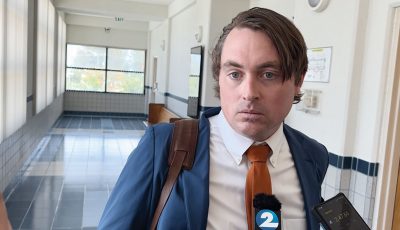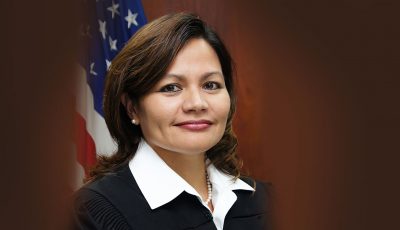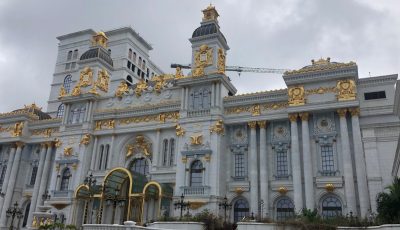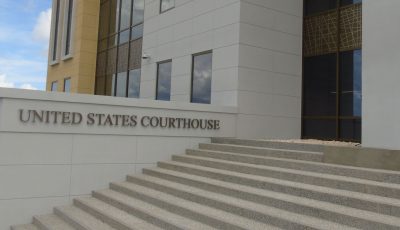IN CASE TO DECLARE BUDGET ACT UNCONSTITUTIONAL
Request to delay evidentiary hearing due to AAG’s passing expected birth of AAG’s first baby granted
The passing of assistant attorney general David Lochabay recently and the expected birth of the first baby of AAG Charles Brasington at any moment have prompted the parties in the two medical malpractice lawsuits to delay the evidentiary hearing pertaining to a request to declare the 2016 Budget Act unconstitutional.
Brasington, counsel for the CNMI government, and attorney Claire Kelleher-Smith, counsel for plaintiffs Jotonia B. Aguon and Timothy Cruz, and Gorjonny Camacho, requested the Superior Court on Thursday to reschedule the evidentiary hearing currently set on Sept. 9 to 21, 2016 to December 2016.
Associate Judge Joseph N. Camacho on that same day granted the parties’ stipulation and set the evidentiary hearing for Dec. 5, 2016 at 9am.
Brasington and Kelleher-Smith disclosed in their stipulation that the two cases were handled by AAG Lochabay, who passed last Aug. 21.
The lawyers said the decline in Lochabay’s health was sudden and not expected.
They said when the counsels last conferred with Lochabay about the scheduling in this case, he planned to be present as lead counsel at the evidentiary hearing.
Furthermore, Brasington and Keller-Smith said, Lochabay had many active cases and projects that have been reassigned.
The lawyers said this additional workload, when taken together, has put a significant strain on the Office of the Attorney General’s Civil Division.
The lawyers added that Brasington is expecting the birth of his first child at any moment and that since neither he or his fiancée have family on Saipan, he will need to take parental and annual leave to care for his fiancée and newborn.
Brasington and Kelleher-Smith said even though co-counsel will be assigned to continue facilitating discovery, the government requires additional time to finish providing the discovery materials.
Brasington’s necessary absence, though temporary, will apparently further strain the resources of OAG’s Civil Division.
Brasington had been assisting Lochabay with the case, and has been diligently working on providing discovery materials since the last status conference.
However, the parties said, some of the requested materials have been difficult to compile because they are not stored electronically, are only partially stored electronically, or are stored in a format that takes time to decipher.
They parties agreed that several records must also be manually retrieved from archives and reviewed.
Brasington and Kelleher-Smith said producing the requested documents requires the cooperation and coordination of other agencies and the legislative branch.
“These difficulties in document production have been compounded by the fact that many of these agencies, such as the Department of Finance, are also currently tasked with the government-wide audit and the annual budgeting process,” the lawyers said.
They said these bottlenecks were not foreseen or expected by either party.
As such, the lawyers said, the materials have not yet been provided to plaintiffs thus, they have been unable to reschedule the government’s deposition because the plaintiffs must have and review those discovery materials beforehand to conduct an effective deposition.
The parties have been cooperating in an amicable manner to ensure through discovery will establish such a record for the court.
The lawyers said plaintiffs will not have all of the evidence they need before the hearing as currently set.
Last June, the CNMI Supreme Court denied the government’s petition to prevent Camacho from proceeding with a hearing pertaining to plaintiffs’ request to declare the 2016 Budget Act unconstitutional.
The high court justices ruled that while they are tempted to halt Camacho’s post-judgment proceedings, there is no order, at this juncture, directing the legislature to appropriate funds.
Last Feb. 8, Camacho issued an order, allowing the parties to call any witnesses at the evidentiary hearing who will be helpful in deciding the constitutionality of the 2016 Budget Act.
Camacho originally set the evidentiary hearing for May 9, 2016.
Attorney Michael Dotts has argued that the Budget Act of 2016 is unconstitutionally unbalanced under the CNMI Constitution because it did not provide for the payment of judgments in a reasonable amount.
Dotts is the lead counsel for plaintiffs Jotonia B. Aguon, Timothy Cruz, and Gorgonny Camacho.
Aguon and Cruz are holding a $35,000 judgment against the government in connection with their lawsuit over the death of their child at the Commonwealth Health Center.
Gorgonny Camacho is holding a $10,000 judgment against the government in connection with his medical malpractice lawsuit against CHC.
To collect payment of the two judgments that were entered in 2013, Dotts filed motions for orders in aid of judgment. He asked the Superior Court to declare the 2016 Budget Act unconstitutional. The two cases were consolidated.
Lochabay then argued, among other things, that Camacho’s order directing the plaintiffs to file a stand-alone motion challenging the constitutionality of the 2016 Budget Act is clearly erroneous because the court lacks jurisdiction.



























